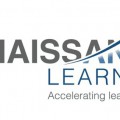 By MARY PATRICK
By MARY PATRICK
New studies by a division within the federal Department of Education could be the first in a wave of information that changes how educators approach teaching students.
The method of research – randomized clinical trials – has transformed the medical industry. Now the Institute of Education Sciences says it might do the same for teaching.
The thought behind the research is to replace guesswork that is used in education with hard data. Randomized testing involves a study in which participants, in this case students, are allocated at random to try different teaching methods or asked to utilize different tools.
Among the findings so far are that the choice of instructional materials can make as much difference to students as teachers, according to an article in The New York Times. Those include textbooks curriculum guides, homework and quizzes.
The Times article said that the choice of the materials that are the wrong fit for the students can be as bad as a terrible teacher. On the other hand, the choice of good materials can offset a bad teacher.
The Institute has conducted 175 randomized studies. The goal is to use data and research instead of guesswork. For example, according to the Department of Education website, one study found that a specific math curriculum – Math Expressions – led to first grade students getting a higher score than those who used other methods.
In second grade classrooms, the students did even better, according to the Department of Education.
Another study found that a computer-aided math program affected how much students learned. In addition, a study is currently underway in Tampa, Fla., in which cognitive psychologists are assessing an experimental math program, according to the Times.
The study, being done at Liberty Middle School, is on “interleaving,” a method in which distinct but related math problems are mixed together in daily homework assignments.
Anthony Kelly, a professor of educational psychology at George Mason University, told the Times that there may be many obstacles to putting the researchers’ findings into play. For example, teachers may be hesitant to change curriculum.
“By all means, yes, we should do it,” Kelly said, according to the Times. “But the issue is not to think that one method can answer all questions about education.”
While clinical trials have worked in medicine, it may be more difficult to apply to education.
“It is an order of magnitude more complicated to do clinical trials in education than in medicine. In education, a lot of what is effective depends on your goal and how you measure it,” F. Joseph Merlino, president of the 21st Century Partnership for STEM, told the Times.
Among other countries, only Great Britain is funding the same kind of randomized tests, according to the Times.





